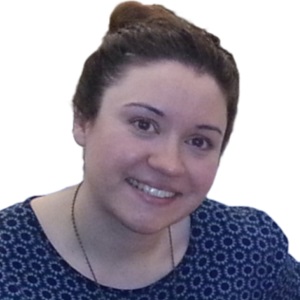Areti Mourka - 2021 SPIE Women in Optics Planner
Postdoctoral Research Fellow
Institute of Electronic Structure and Laser
Foundation for Research and Technology-Hellas, Greece
SPIE Member
 |
Born in Greece |
My father used to open and repair all sorts of engines and devices, such as TVs, water pumps, and motorcycles. Although he didn’t have an engineering degree he showed me and my brother the fun of how to “debug and fix” many of our household devices. Sitting next to him and working as his helper was like a true apprenticeship in electronics, mechanics, automotive, and more. This, along with my inherent problem-solving skills, inspired me to choose a science subject. I was good at math and physics in high school. Physics was the one subject that frustrated me the most: no surprise, I became a physicist.
My main duty is to research. Using various methodologies and sources, I create and administer experiments to obtain data. Then, I spend a great deal of my time making sense of the data I have collected and finding ways to represent my findings. Sometimes this may result in a scientific paper; other times it may be a presentation for management or a report. I am glad to work with a rapidly emerging technology like 3D printing. I use a laser-based 3D additive manufacturing technique, which enables the ‘direct writing’ of computer-designed structures with resolution of a few tens of nanometers.
Acquiring successful time-management skills was the biggest challenge I faced. It was an aspect of college life that I underestimated. Now that I am in the workforce, I continue to use the skills I gained, and I am always trying to improve on them as well. As a postdoc you must have an absolute passion for your research. You should take opportunities even if they are not perfect, because you don’t know where they will lead. You have to think forward: try, apply for things, and take steps in a different place. In addition, you need to think broadly about research possibilities, look outward, and explore options. In the end your choices have to also be practical.
Don’t overthink! Just do it and be the best you can be! Don’t hold back because it seems hard, or there is risk, or you lack confidence. If you go for it and it does not work out, it’s ok, there will be other possibilities along the way and you can choose a new path. But once you really hesitate, the opportunity may well be lost. A career in STEM is a very worthwhile profession, where the results can be incredibly satisfying. Women are more likely to receive negative criticism in science: take it seriously, but not personally! If there is truth or merit, try to learn from it. Otherwise, let it roll right off you.